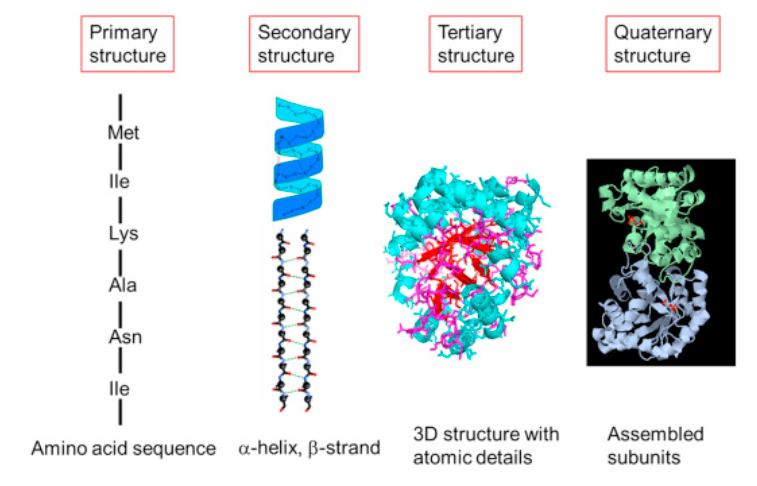Glycoprotein Structure Analysis Services
Glycoproteins are fundamental biomolecules that play critical roles in cellular communication, immune recognition, protein trafficking, and structural stability. Their unique feature lies in the covalent attachment of glycans to specific amino acid residues, which introduces both complexity and biological diversity. Glycoproteins exhibit heterogeneous glycan structures that influence folding, stability, solubility, receptor interactions, and immunogenicity. Glycoprotein structure analysis refers to the systematic characterization of glycoproteins at multiple structural levels, including primary amino acid sequence, secondary motifs such as alpha helices and beta sheets, tertiary folding stabilized by disulfide bridges and hydrophobic interactions, and quaternary organization of multi-subunit complexes. In addition, glycans themselves are structurally diverse and must be analyzed in relation to their attachment sites and biological functions.

Figure 1. Primary, Secondary, Tertiary, and Quaternary Protein Structures
Comprehensive structural analysis provides insights into glycosylation patterns, protein folding, stability, and functional activity. It enables researchers to determine how glycosylation influences molecular interactions, therapeutic efficacy, and safety. Regulatory agencies require detailed structural data for glycoprotein therapeutics to confirm batch consistency, biosimilarity, and overall product quality.
Service at MtoZ Biolabs
MtoZ Biolabs provides comprehensive Glycoprotein Structure Analysis Services, integrating advanced mass spectrometry, chromatography, and structural biology platforms to deliver precise characterization at multiple levels.
Our service portfolio includes:
Service Advantages
☑️Expertise: A professional team with deep knowledge in glycoproteomics and structural biology.
☑️Advanced Platforms: Access to state-of-the-art mass spectrometry, spectroscopy, and structural biology tools.
☑️Comprehensive Insights: Integration of glycan analysis with protein structural data for holistic interpretation.
☑️Flexibility: Customized workflows tailored to the needs of different projects and clients.
☑️Reliability: High reproducibility and accuracy across all analytical platforms.
Applications
1. Biological Function Research
Understanding the role of glycoproteins in cellular processes such as signaling, immune response, and protein–protein interactions. Glycosylation patterns are integral to protein function and cellular communication.
2. Developmental Biology
Studying how glycoprotein glycosylation influences embryonic development, cell differentiation, and tissue-specific protein expression. Analyzing glycosylation changes during developmental stages provides insights into cell fate determination.
3. Biopharmaceutical Quality Control
Ensuring the structural consistency and biological activity of therapeutic glycoproteins. Glycoprotein structure analysis plays a critical role in biosimilar development, regulatory submissions, and manufacturing quality control.
4. Environmental Monitoring
Analyzing glycoproteins in environmental samples to assess contamination, biological activity, and toxicity. This application is important for monitoring protein expression in ecosystems and pollution effects on wildlife.
5. Glycan Diversity
Profiling the vast diversity of glycan structures present on glycoproteins, which contribute to protein folding, stability, and cellular interactions. This is crucial for understanding glycan heterogeneity in health and disease.
6. Structural Glycobiology
Combining structural biology and glycosylation analysis to uncover the roles of glycans in protein conformation, function, and interactions. This is key in deciphering glycan-related mechanisms of action in therapeutic applications.
Sample Submission Suggestions

All samples should be kept on ice during processing, and stored at –80°C prior to shipment. Ship samples on dry ice with proper labeling and accompanying documentation.
If you have special sample types or require additional guidance, please contact us for personalized support before sample preparation.
Deliverables
1. Comprehensive Experimental Details
2. Materials, Instruments, and Methods
3. Total Ion Chromatogram & Quality Control Assessment (project-dependent)
4. Data Analysis, Preprocessing, and Estimation (project-dependent)
5. Bioinformatics Analysis
6. Raw Data Files
Related Services
How to order?







